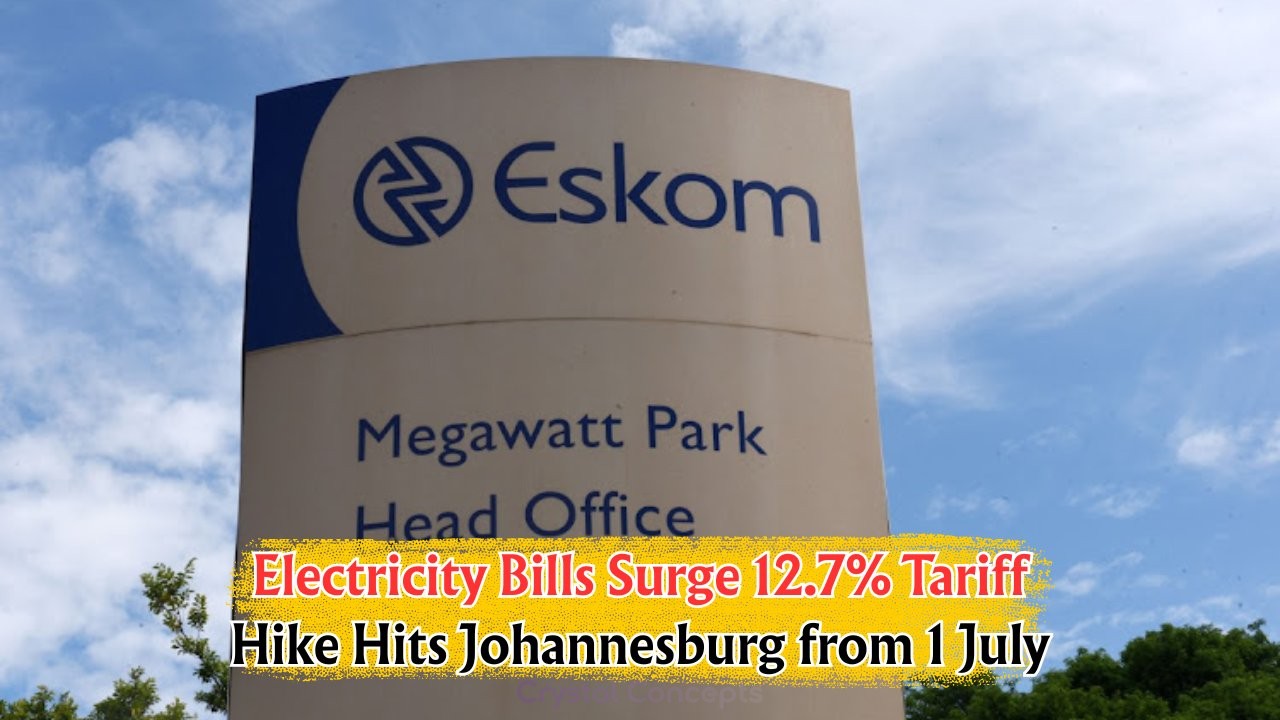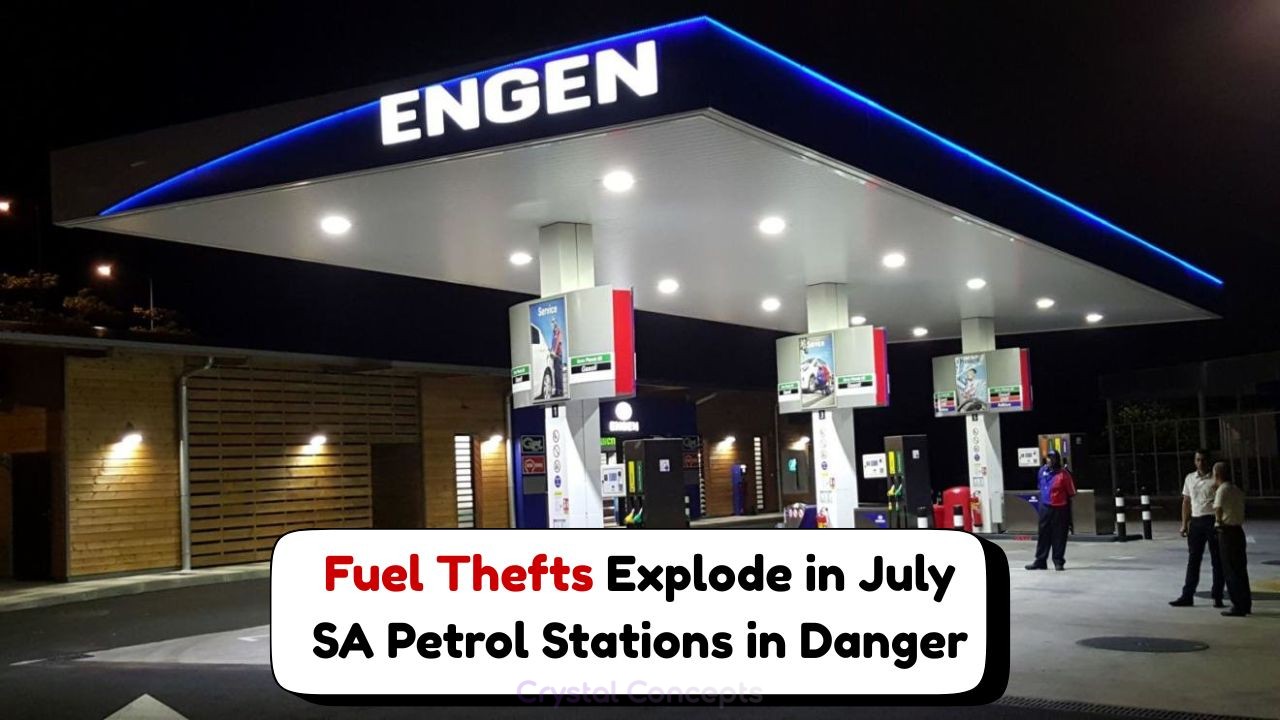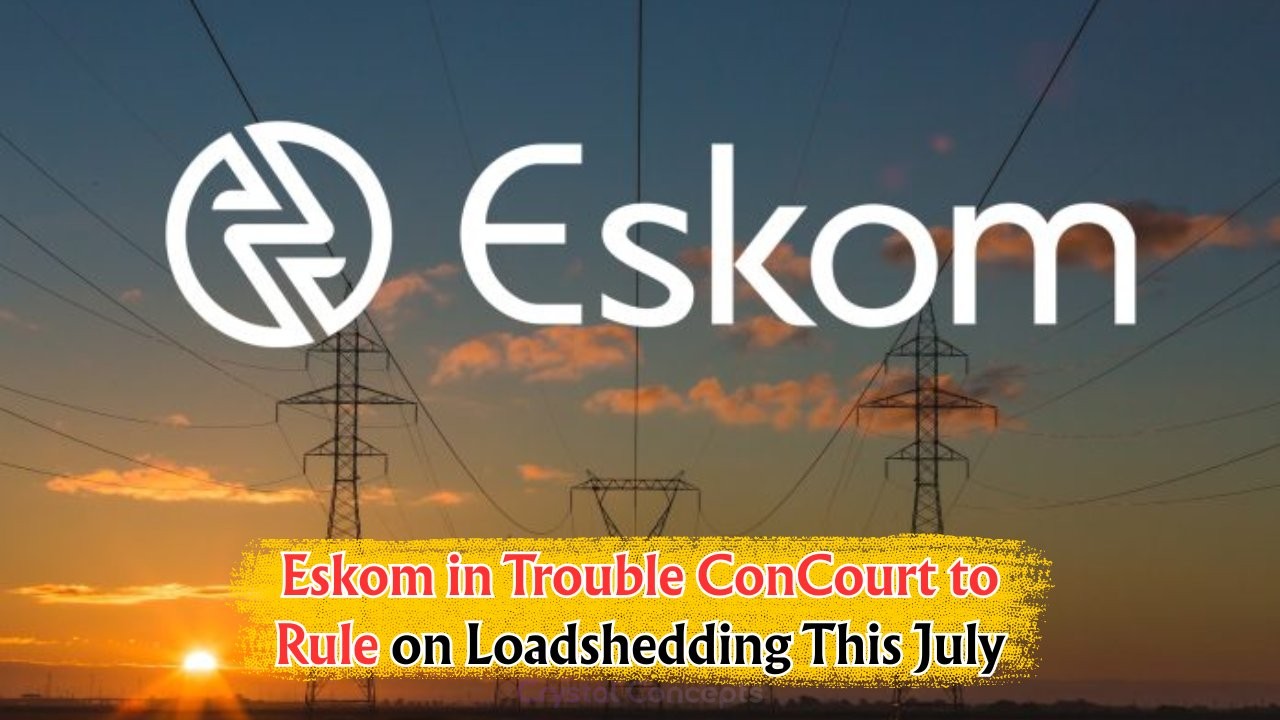Johannesburg financial strain due to Eskom’s electricity hike: As July 1 approaches, Johannesburg is preparing to face significant financial challenges with Eskom’s 12.7% electricity tariff increase. This development is causing widespread concern among residents and businesses alike, as the higher costs threaten to stretch already tight budgets. Many households are bracing for the impact, considering that energy expenses form a substantial part of monthly outlays. For businesses, particularly those in energy-intensive sectors, this increase could cut into profits and potentially lead to higher prices for consumers. The city, known for its vibrant economy, now faces the task of adjusting to this new financial reality while continuing to grow and support its communities. Residents are urged to explore energy-saving measures and alternatives to help mitigate the effects of this price hike.
Impact on Johannesburg’s Economy with Eskom’s 12.7% Hike
Johannesburg is a city that thrives on its robust economy, but the upcoming 12.7% increase in electricity tariffs is expected to have ripple effects across various sectors. Industries heavily reliant on electricity, such as manufacturing and mining, may see their operational costs rise significantly. This could potentially lead to cutbacks, layoffs, or even closures if businesses cannot absorb the additional expenses. Furthermore, small and medium-sized enterprises (SMEs), which are crucial to the city’s economic fabric, might struggle to cope with the increased overheads, potentially stifling growth and innovation.
- Manufacturing and mining sectors face higher costs.
- Potential layoffs in energy-dependent industries.
- SMEs may experience stifled growth.
- Increased operational costs across the board.
Residential Budget Concerns Amidst Eskom’s Price Increase
For the average Johannesburg resident, the 12.7% rise in electricity costs translates to a significant re-evaluation of household budgets. Families are now forced to rethink their monthly expenditures, find ways to cut back on non-essential items, and prioritize essential spending. The hike comes at a time when many are already feeling the pinch of other rising living costs, including food and transportation.
| Household Expense | Percentage of Budget | Impact of Increase | Potential Adjustments |
|---|---|---|---|
| Electricity | 15% | +12.7% | Reduce usage |
| Groceries | 30% | Stable | Buy in bulk |
| Transport | 25% | +5% | Carpool |
| Entertainment | 10% | Stable | Limit outings |
| Other | 20% | Variable | Re-evaluate |
Strategies for Coping with Eskom’s Electricity Price Surge
Adapting to the electricity price hike requires strategic planning and resourcefulness. Residents and businesses are encouraged to consider energy-efficient solutions and explore alternative sources of power. Implementing solar panels, using energy-saving appliances, and adopting efficient lighting systems can significantly reduce electricity consumption and mitigate the impact of the tariff increase.
- Invest in solar energy systems.
- Upgrade to energy-efficient appliances.
- Utilize LED lighting solutions.
- Conduct energy audits for homes and businesses.
Government and Community Responses to Eskom’s Tariff Adjustment
The government’s response to Eskom’s tariff increase is crucial in helping Johannesburg cope with the financial implications. Efforts are being made to offer subsidies or financial assistance to vulnerable groups and small businesses most affected by the hike. Community groups and non-profit organizations are also playing a pivotal role in raising awareness about energy conservation and providing resources to help residents manage their electricity usage efficiently.
| Response | Details | Beneficiaries |
|---|---|---|
| Subsidies | Financial aid for low-income families | Vulnerable groups |
| Community Workshops | Energy-saving techniques | General public |
| Government Campaigns | Promote alternative energy | Residents and businesses |
| NGO Initiatives | Support for SMEs | Small businesses |
Energy Conservation Tips to Offset Eskom’s Tariff Hike
Conserving energy is one of the most effective ways to manage electricity costs in light of Eskom’s price increase. Simple actions can lead to substantial savings and help alleviate the financial burden on households and businesses. Consider these energy-saving tips:
- Switch off lights when not in use.
- Unplug devices that are not being used.
- Use natural light during the day.
- Implement a routine energy audit.
Long-term Solutions for Johannesburg’s Energy Challenges
While immediate measures are essential, long-term strategies are critical to addressing Johannesburg’s energy challenges. Investing in renewable energy sources, such as wind and solar farms, can provide sustainable power solutions. Encouraging public-private partnerships in energy projects can also foster innovation and efficiency in power generation and distribution.
- Develop solar and wind energy projects.
- Enhance energy storage capabilities.
- Implement smart grid technologies.
- Foster public-private partnerships in energy sector.
How Eskom’s Price Increase Affects Local Businesses
Local businesses, especially those with tight margins, are particularly vulnerable to the electricity price hike. The increased cost of energy can lead to reduced profitability and competitiveness in the market. Businesses may need to pass on the extra costs to consumers, which could impact sales and customer loyalty.
 South Africans Face Tough Times with CPI Surge to 3.2% in July - Fuel and Food Prices Soar
South Africans Face Tough Times with CPI Surge to 3.2% in July - Fuel and Food Prices Soar
- Price adjustments might be necessary.
- Potential loss of market competitiveness.
- Increased focus on cost management.
- Exploration of alternative revenue streams.
Adapting to Eskom’s Financial Impact
Adapting to the financial impact of Eskom’s tariff increase will require innovative thinking and proactive measures from all stakeholders. By focusing on energy efficiency, exploring alternative power sources, and seeking collaborative solutions, Johannesburg can navigate these challenges and work towards a more sustainable energy future.
- Encourage innovative energy solutions.
- Seek collaborative efforts between sectors.
- Focus on sustainability in energy policies.
FAQ Section
What is the percentage of Eskom’s electricity price increase?
The electricity price increase is 12.7%.
When does the electricity price increase take effect?
The increase takes effect on July 1.
How can residents cope with the higher electricity costs?
Residents can cope by implementing energy-saving measures, such as using energy-efficient appliances and reducing consumption.
What support is available for vulnerable groups?
Subsidies and financial assistance are available for low-income families and vulnerable groups.
What long-term solutions are being considered for energy challenges?
Long-term solutions include investing in renewable energy and developing smart grid technologies.









